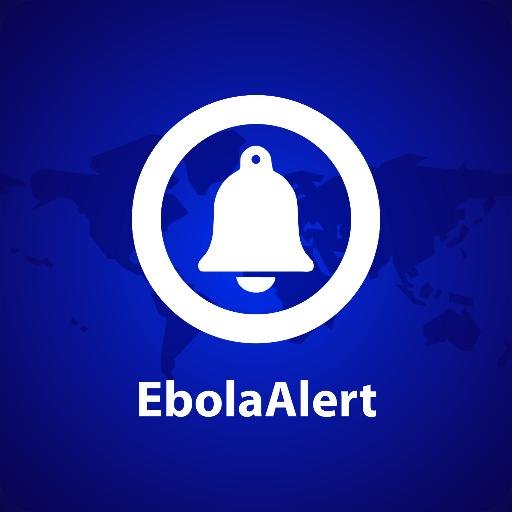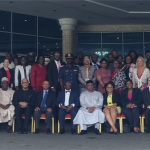Warning: Illegal string offset 'source_type' in /home/mychutej/public_html/blog/wp-content/plugins/egany-facebook-to-wp/egany_facebook_to_wordpress.php on line 1099
The Joint External Evaluation (JEE) is a voluntary, collaborative process to assess a country’s capacity under the International Health Regulations (IHR) to prevent, detect, and rapidly respond to public health threats.
Since 2014, there has been a growing number of countries supporting the Global Health Security Agenda. The aim of the agenda is to ‘dEtect, prEvent and rEspond‘ to diseases. The goal is to achieve a world safe and secure from global health threats posed by infectious diseases and the best way to interpret this vision is our consistent use of letter E.
It is critical that all countries build the capacity to detect, prevent, and respond to public health events. Strengthening countries’ disease surveillance and response systems is central to improving public health security in each country and globally.
Related Article: A Story of Community Building
For restructuring, countries need adequate and timely information about the existing gaps in health systems and preparedness. External assessments are a vital tool adapted by countries towards achieving the core objectives of Global Health Security Agenda.
In May 2005, the 58th World Health Assembly (WHA) adopted the International Health Regulations (2005) [IHR (2005)] which subsequently entered into force on 15 June 2007. In June 2007, the revised IHR provides the world the global framework to prevent, detect, assess and provide a coordinated response to public health events. This can be done through a Joint External Evaluation (JEE).
An external evaluation is an opportunity for countries to identify strengths and shortcomings in their existing health security systems. By undergoing a Joint External Evaluation, countries commit to developing a country plan for the improvement of health security capacity and acceleration of IHR implementation.
The Joint External Evaluation (JEE) is a voluntary, collaborative process to assess a country’s capacity under the International Health Regulations (2005) (IHR) to prevent, detect, and rapidly respond to public health threats whether occurring naturally or due to deliberate or accidental events.
Related Article: GHSA: Marching Towards a Disease-Free World
A JEE process consists of a national self-assessment and an external evaluation team with experts from all relevant sectors such as human and animal health, food safety, agriculture, defense and public safety. The JEE Secretariat of the WHO Emergency Programme schedules, coordinates, and organizes the JEEs, working across and in collaboration with all levels of the organization as well as FAO, OIE, and other partners in countries.
The tool has 19 technical areas arranged following these core elements:
- PREVENTING and reducing the likelihood of outbreaks and other public health hazards and events defined by IHR is essential.
- DETECTING threats early can save lives.
- RESPONDING rapidly and effectively, using multi-sectoral, national, and international coordination and communication.
This tool specifically helps to:
- Determine the baseline capacity, including gaps and needs;
- Inform the development of implementations plans or roadmaps;
- Measure progress on work implemented across the IHR Core Capacities; and
- Highlight gaps and needs for current and prospective donors and partners, as well as to inform country-level planning and priority setting.
The evaluation is completed in two stages:
- an initial self-evaluation conducted by the country using the JEE tool and
- an in-country evaluation conducted by an external evaluation team of subject matter experts, done in close collaboration with the country.
Once the self-evaluation is complete, the host country shares it with the Joint External Evaluation Team. The Joint External Evaluation Team is a multi-sectoral team comprising experts from member states, World Health Organization, World Organization for Animal Health, Food and Agriculture Organization, INTERPOL, and other key international organizations. Over the course of approximately 5 days, host country experts present their country’s capacity in the 19 technical areas covered in the JEE tool.
Nigeria is the 16th country in Africa to perform the JEE process and ongoing from June 12-20, the Nigeria Center for Disease Control (NCDC) and the Federal Ministry of Health host stakeholders across different sectors to the 2017 Joint External Evaluation after an initial self-evaluation process conducted in May.
At the end of the Joint External Evaluation mission, Nigeria will be able to utilize the data and lessons learned from the evaluation process in order to inform country-level planning and priority setting.
Follow the real time conversation on social media with #NGJEE17
Some highlights;
Grateful to @WHONigeria & our partners for their support during the Internal JEE Validation. Now to the final process in June!#NGJEE17 pic.twitter.com/d6HpMi18iz
— NCDC (@NCDCgov) 24 May 2017
We’re pleased to have wide representation from areas of International Health Regulation implementation in Nigeria & the region #NGJEE17 pic.twitter.com/RiKpYBAM9x — NCDC (@NCDCgov) 12 June 2017
Strengthening Nigeria’s health security system is a deliberate process, every gap must be bridged so the need for wide evaluation. #NGJEE17 pic.twitter.com/dMdvz14dYK
— EpidAlert (@EbolaAlert) 12 June 2017
Sources
https://www.ghsagenda.org/assessments
http://apps.who.int/iris/bitstream/10665/204368/1/9789241510172_eng.pdf
http://apps.who.int/iris/handle/10665/204368
http://www.twitter.com/NCDCgov













Leave a Reply